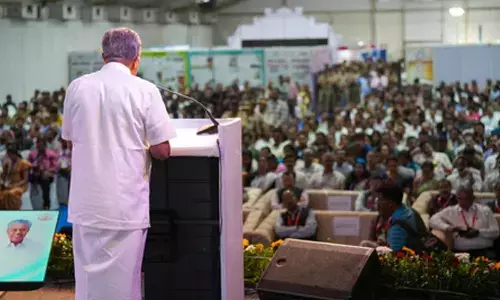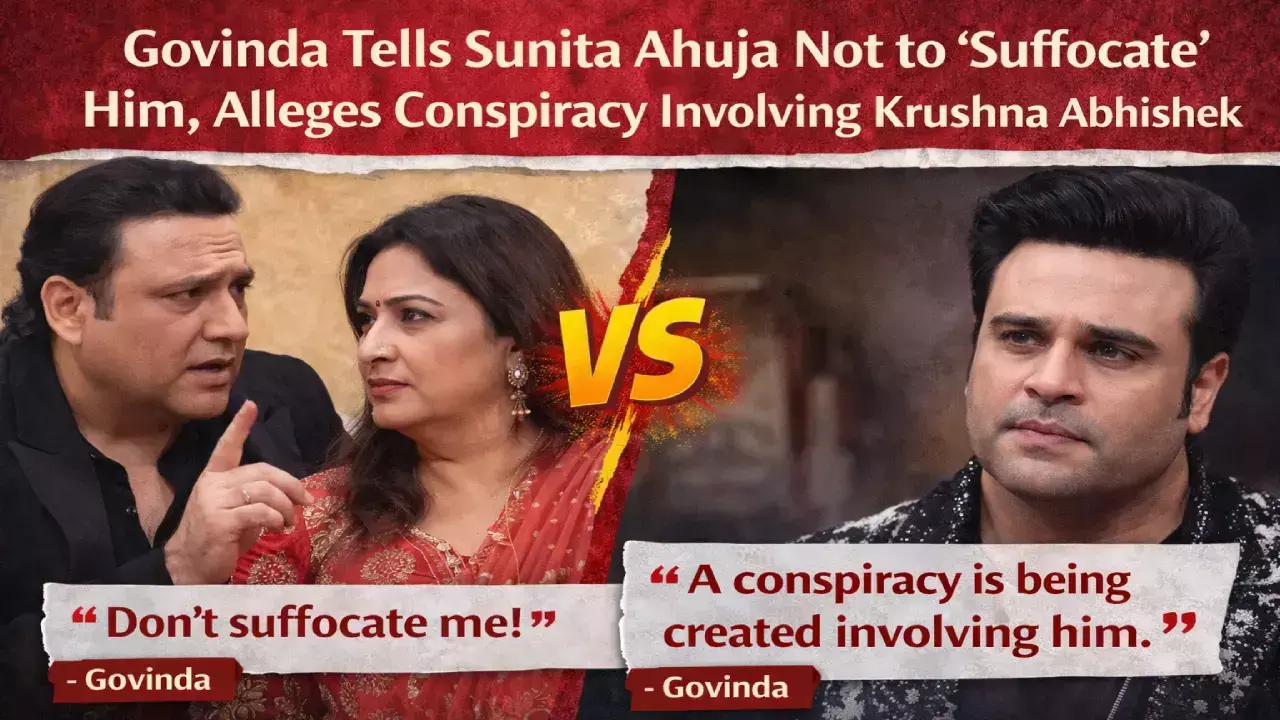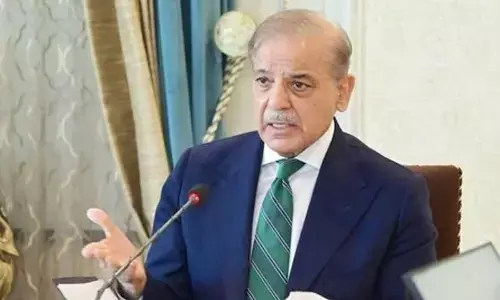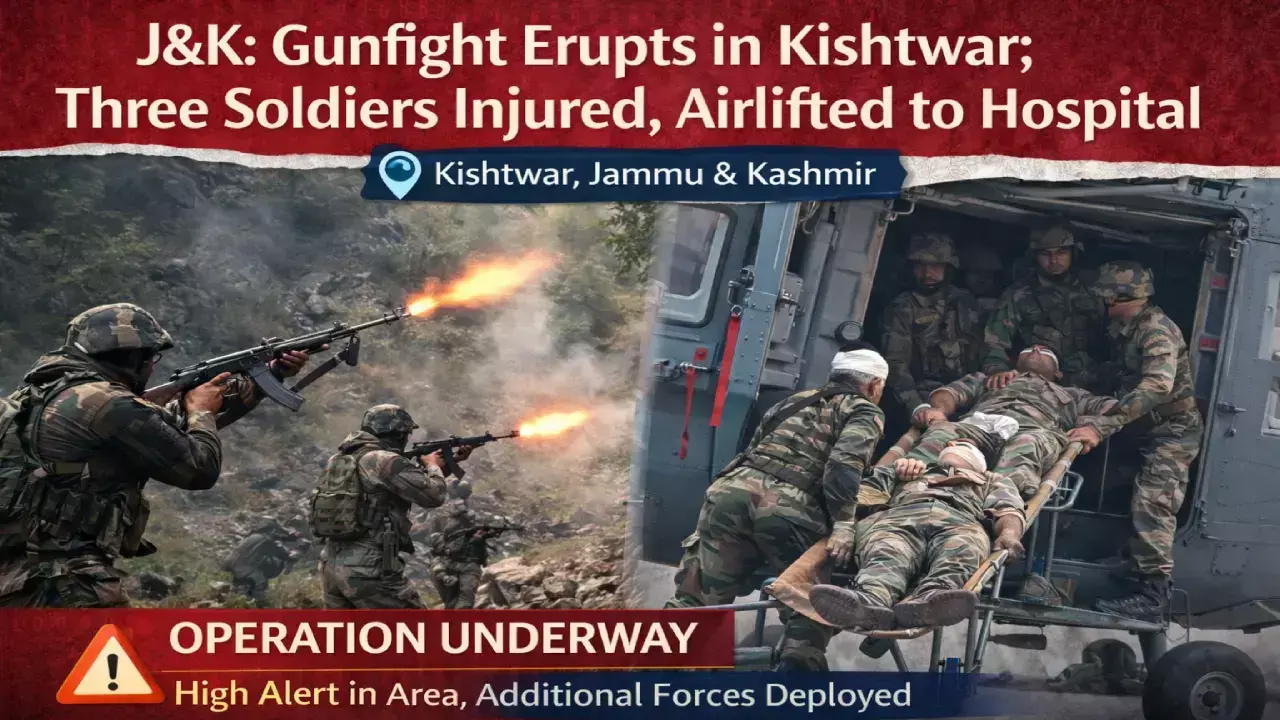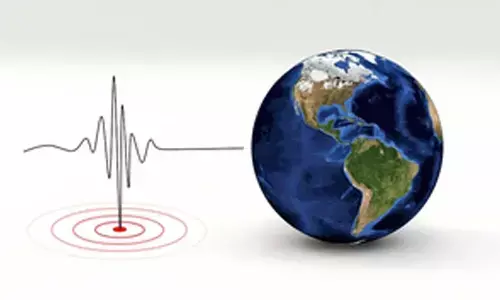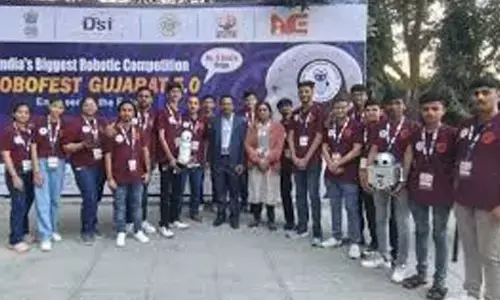Understanding India's Nuclear Policy
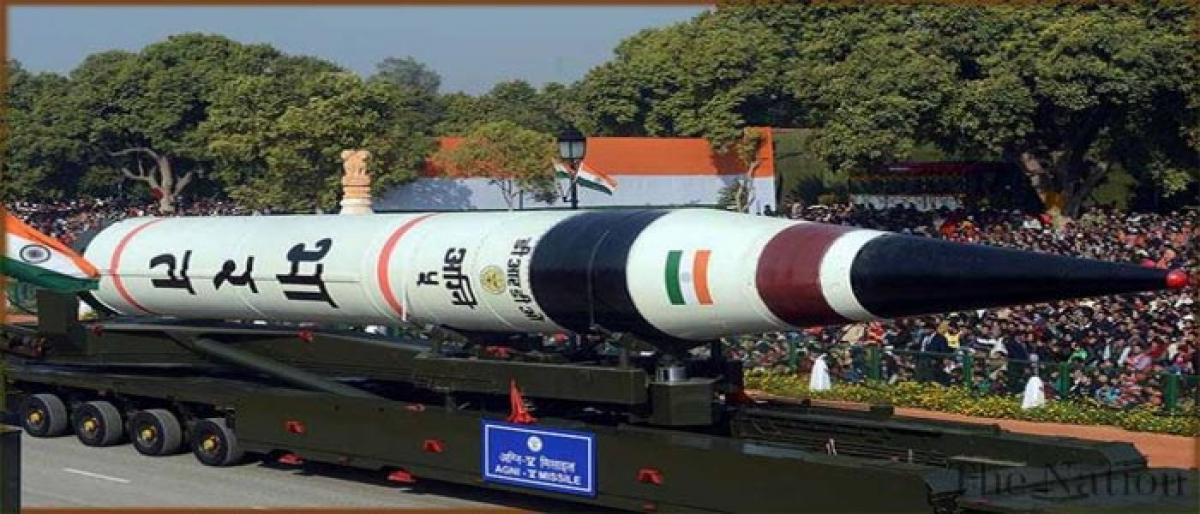
For the second time in the last decade, the Nobel Committee awarded its annual peace prize to the laudable goal of nuclear disarmament. This year’s recipient, the International Campaign to Abolish Nuclear Weapons (ICAN), has worked tirelessly to raise awareness of nuclear dangers.
For the second time in the last decade, the Nobel Committee awarded its annual peace prize to the laudable goal of nuclear disarmament. This year’s recipient, the International Campaign to Abolish Nuclear Weapons (ICAN), has worked tirelessly to raise awareness of nuclear dangers.
The ICAN, a coalition of NGOs from almost 100 countries, has been tirelessly working on a global campaign to mobilise people to inspire, persuade and pressure their governments to initiate and support negotiations for a treaty banning nuclear weapons (the Treaty on the Prohibition of Nuclear Weapons at the United Nations).
This treaty is the first legally binding international agreement to comprehensively prohibit nuclear weapons, reflects the ambition of many states to rid the world of nuclear weapons. To make further progress, focus must be kept on practical steps to reduce the risks of nuclear weapons being used. Without such work, the prohibition treaty risks becoming merely a moral victory, rather than contributing to concrete steps towards a world without nuclear weapons.
The treaty is significant but it does not completely ban nuclear weapons
• The nuclear weapon ban is a landmark treaty, of great political and historical importance. The prohibition treaty creates a legal basis for banning nuclear weapons among adhering states; however it hasn’t actually banned such weapons. Nuclear arsenals exist and will continue to exist for years to come.
• The treaty establishes no new mechanisms to encourage states with nuclear weapons to dismantle them.
• Instead, it seeks to delegitimise nuclear weapons as tools of statecraft on the grounds of indiscriminate humanitarian effects.
• A state that joins the treaty while still possessing nuclear weapons is not required to accept any safeguards until after it has eliminated its weapons. This is a major weakness – elimination could take years, during which time the state could be producing new weapons to replace those it is eliminating.
• The nuclear prohibition movement has no doubt gained momentum but neither the advent of a nuclear prohibition treaty, nor the increase in nuclear dangers seems to have weakened the belief in nuclear deterrence by the states possessing such weapons.
What is Nuclear Deterrence?
• The strategic concept of deterrence aims to prevent war. It is the justification virtually every nuclear state uses for maintaining nuclear arsenals.
• The concept of deterrence can be defined as the use of threats by one party to convince another party to refrain from initiating some course of action.
• The concept of nuclear deterrence follows the rationale of the ‘first user’ principle.
• States reserve the right to use nuclear weapons in self-defence against an armed attack threatening their vital security interests.
• Possession of nuclear weapons could be seen as the ultimate bargaining tool in international diplomacy under such concept.
• The supporters of this concept argue that without nuclear weapons there would be more violence. Many of the states opposed to the prohibition treaty are located in Europe and East Asia, regions whose politics continue to be shaped by the trauma and outcome of the Second World War.
Nuclear debate : Use as war equipment and as energy producer
• At the same time, using the nuclear genie and harnessing it for prosperity was the best dream.
• Nuclear weapons have ceased to be viable as instruments of war because of the unpredictability of the consequences of a nuclear war.
• No one can trust even the use of tactical nuclear weapons without collateral damage for the user.
• Will be threat as reached in the wrong hand like 9/11 incidents.
• After Fukushima, nuclear power too is receding as a sensible component of the energy mix.
• The threat of terrorism looms larger than the threat of nuclear weapons.
• One clean-up operation after an accident can demolish many years of technological advancement and hopes of having cheap power.
• The sun shines as a source of energy, not the glittering nuclear reactors which seem to emit mushroom clouds.
Non Proliferation Treaty
• The three pillars of the treaty — non-proliferation, disarmament and nuclear energy for peaceful purposes
• The first non-proliferation, has got watered down and disarmament has become the priority.
• They also worry that dangerous technologies like enrichment are within the reach of the non-weapon states.
• In the context of Japan and South Korea debating acquisition of nuclear weapons, they feel that non-proliferation should be brought back to be the first priority of the NPT.
• The promotional function of the International Atomic Energy Agency (IAEA) is also a concern for them.
• The NPT votaries now advocate that non-proliferation should be emphasised to the exclusion of disarmament and nuclear energy promotion.
Global nuclear ban under UN
• More than 120 nations in October 2016 voted on a UN General Assembly resolution to convene the conference to negotiate a legally binding treaty to prohibit nuclear weapons, leading to their total elimination.
• Britain, France, Russia and the U.S. voted no, while China, India and Pakistan abstained.
• Though India had recommended the convening of such a conference, it abstained on the resolution as it was not convinced that the conference could accomplish much at this time.
• India supported the commencement of negotiations in the Conference on Disarmament on a comprehensive Nuclear Weapons Convention, which in addition to prohibition and elimination also includes verification.
• The U.S. and others wanted to accept the reality that such conferences would serve no purpose.
• The conference has failed even before it commenced.
Nuclear Policy Of India
• India has had an uncomfortable relationship with nuclear weapons.
• From the early days of independence, Indian leaders, especially Jawaharlal Nehru, took a very public and very vocal stand against nuclear weapons.
• But Nehru, a modernist, was also convinced that nuclear technology had a role to play in national development.
• To a lesser degree, he also thought that nuclear weapons technology might have a role to play in national defence if efforts at nuclear disarmament should fail.
• These somewhat contradictory strands are still visible today, as they have been through much of the last six decades of Indian nuclear policy.
• But it would be foolish to suggest that Nehru’s perspective on nuclear weapons was the only determinant in Indian nuclear policy.
• India’s nuclear policy was also influenced by India’s international security condition as well as by domestic variables such as the vagaries of political change and the influence of bureaucratic elites.
• Indeed, India’s decision to build a nuclear force was taken only in the late 1980s, much after it had become clear that Pakistan — with Chinese technological assistance — had made rapid advances in the nuclear weapons programme.
• As for bureaucratic influence, some defence scientists played a key role in keeping the weapons programme alive even when there was no political support or indeed, active opposition, while other bureaucrats were responsible for creating political awareness of India’s declining nuclear options.
• Nevertheless, these variables suggest a moderate Indian approach to nuclear weapons and thus reinforce the dominant tendency towards a political rather a military approach to looking at nuclear weapons.
• They do not suggest any dramatic changes nor rapid advances in India’s nuclear weapons programme.
The purpose of India’s Nuclear Weapons
• Indian leaders have generally considered nuclear weapons at best a necessary evil.
• Prime Ministers Lal Bahadur Shastri and Rajiv Gandhi sought international solutions to avoid committing to nuclear weapons; Prime Minister Morarji Desai shut down the weapons program for a time.
• Even Prime Minister Atal Vajpayee, who ordered the nuclear tests in 1998, was more ambivalent two decades earlier, siding with Desai in voting against restarting the nuclear weapons program in 1979.
• As a number of analysts have concluded, growing nuclear threats and a progressively unaccommodating global nuclear order forced New Delhi to move towards a declared nuclear arsenal in the 1990s.
• This discomfort with nuclear weapons has defined the manner in which India has viewed nuclear weapons.
• Much of the Indian debate about nuclear weapons between the 1960s and the 1990s did not consider how nuclear weapons might be used within the framework of Indian strategy.
• The arguments and propositions largely revolved around whether India should go nuclear, not what India should do with nuclear weapons.
• It was only in the 1980s that some Indian strategists such as K. Subrahmanyam and General K. Sundarji started writing about what nuclear weapons might be useful for.
• This also coincided with greater attention among decision-makers to such questions.
• Both Sundarji and Subrahmanyam argued that the kind of bloated nuclear arsenals that the US and the Soviet Union developed during the Cold War were unnecessary and wasteful.
• Nuclear deterrence could be had at far cheaper cost, with a relatively small arsenal.
• In essence, as Tellis has argued, what Sundarji and Subrahmanyam were suggesting was a view of nuclear weapons that emphasized its political rather than military utility, its deterrence rather than war-fighting capability.
• This view of the political utility of nuclear weapons is also reflected in arguments about nuclear weapons providing political space and strategic autonomy, arguments that former Indian Foreign Minister Jaswant Singh has made.
• Not surprisingly, the eventual Indian nuclear deterrent emphasized small numbers and a capability to retaliate, rather than building a deterrent force that would have parity with other nuclear powers.
• But the notion that nuclear weapons are political tools is primarily about how India views the usability of nuclear weapons.
• It does not extend to India’s views about how other states, particularly Pakistan, might see nuclear weapons. In fact Indian views about what nuclear weapons in others’ hands might do are highly pessimistic, assuming implicitly that other States might not be as responsible as New Delhi is or has been.
• India’s view on nuclear proliferation is one indicator of this deeply pessimistic view that India has of the possibility of nuclear weapons use by other states.
• Though India objected to the Nuclear Non-proliferation Treaty (NPT), it has seen proliferation itself as a threat to international stability and has repeatedly touted its “exemplary non-proliferation record of four decades and more.”
• Thus the Indian view of the spread of nuclear weapons is fundamentally different from the ‘more may be better’ arguments of proliferation optimists such as Kenneth Waltz, or even the radical rejection of the concept of non-proliferation by China prior to 1991.
• Indian officials do not think that nuclear weapons have stabilized the region; rather they believe that nuclear weapons in Pakistani hands increase the nuclear risk in the region because Pakistan is seen as irresponsible.
• This fits a larger pattern of contradiction which assumes that other powers, Pakistan in particular, will not be as responsible as India has been.
• Indian views about missile defenses are a further indication of the contradiction in Indian views about nuclear weapons.
• If nuclear weapons are essentially political weapons, not usable in fighting wars, the logic of missile defenses seems difficult to understand: clearly missile defenses are needed only if one assumes that nuclear weapons are going to be used.
• Nevertheless, New Delhi has pursued a ballistic missile defence (BMD) system since at least the mid-1990s. India’s search for an appropriate BMD system appears linked to the growth of Pakistan’s missile delivery capability, including the transfer of Chinese missiles such as the M-11.
• As with nuclear weapons, the search for a BMD system has continued despite changes of political leadership and ideology in New Delhi.
• At various times, India has sought the Russian-built S-300, the Israeli-American Arrow, and the US-built Patriot ballistic missile defence systems.
• India is also thought to have a domestic BMD system in development, built around the still under-development Akash Surface-to-Air missile (SAM).
• New Delhi’s decade-long search has been unsuccessful possibly because Indian decision-makers have not given sufficient thought to what kind of system India needs.
• Indeed, it is not clear how missile defenses will fit into the existing Indian nuclear doctrine.
• India’s official nuclear doctrine has made no mention of a missile defence system, and it is unlikely that the war-fighting orientation of missile defenses will sit well with the political/deterrence driven sentiment that dominates the nuclear doctrine.
• None of the Indian governments that have been in power since 1995 have given any reason why they want missile defences, though the issue had created dissension among some of allies of the United Progressive Alliance (UPA) government when it included communist parties because New Delhi has been seeking to buy a US-built system based on the Patriot PAC-3.
• Thus India’s view of nuclear weapons suggests an element of inconsistency: nuclear weapons are essentially political weapons and unusable militarily by India, but other states might not be as restrained.
• As a consequence, India both opposes the spread of nuclear weapons and pursues BMDs.








